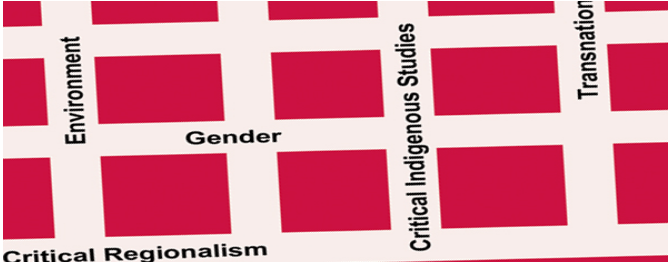
American Studies ETDs
Publication Date
4-12-2018
Abstract
This paper takes up the roles of ideology and spatiality as they impact Diné students and learners in understanding conceptions of normativity, neuro-diversity and bodily variance. I am concerned with how the movement and creation of Indigenous schools and their praxis still maintain and often times produce settler colonial ideologies of being, personhood, difference and ability. I illustrate the challenges that Diné planners and educators face in entrenching cultural knowledge and language into their educational initiatives, while some of the problematic manifestations and expressions of normativity present themselves through state polices, federal law and mainstream curriculum.
I focus on the discourse of ability and disability as it intersects with race and gender as it is formed through settler colonialism. This lays bare the imperial underwriting that makes possible identity formations of disability that promote normative discourse, which in turn have enabled empire, nationalism, and global capitalism. To dismantle these concealed modes of violence, particularly through ideology, we require an intervention into the ways we recognize and think about others. This demands an illumination of how colonial normative constructs permeate ideologies, and thus how we identify and mark difference and belonging both spatially and relationally. K’é, has the power to transform this violent process and become the foundation of special education for Diné people.
Language
English
Keywords
Indigenous Disability, Settler Colonialism, Navajo, Dine, Special Education, Patriarchy, Indigenous Education
Document Type
Thesis
Degree Name
American Studies
Level of Degree
Masters
Department Name
American Studies
First Committee Member (Chair)
Alyosha Goldstein
Second Committee Member
Tiffany Lee
Third Committee Member
Lloyd Lee
Recommended Citation
Yellowhorse, Sandra. "The Heart of K'é: Transforming Diné Special Education and Unsettling the Colonial Logics of Disability." (2018). https://digitalrepository.unm.edu/amst_etds/61
Included in
American Studies Commons, Bilingual, Multilingual, and Multicultural Education Commons, Curriculum and Social Inquiry Commons, Disability and Equity in Education Commons, Disability Law Commons, Early Childhood Education Commons, Educational Methods Commons, Elementary Education Commons, Indigenous Education Commons, Indigenous, Indian, and Aboriginal Law Commons, Other History Commons, Special Education and Teaching Commons, Women's Studies Commons
